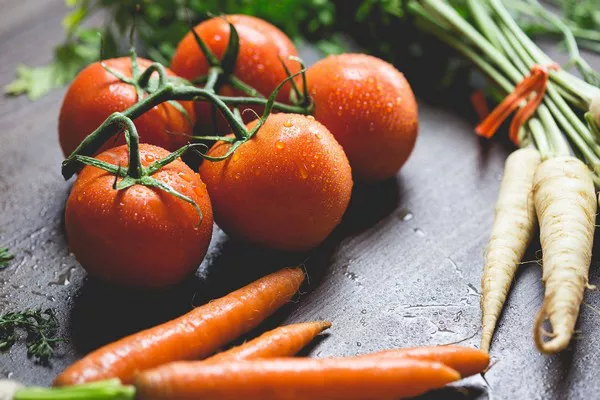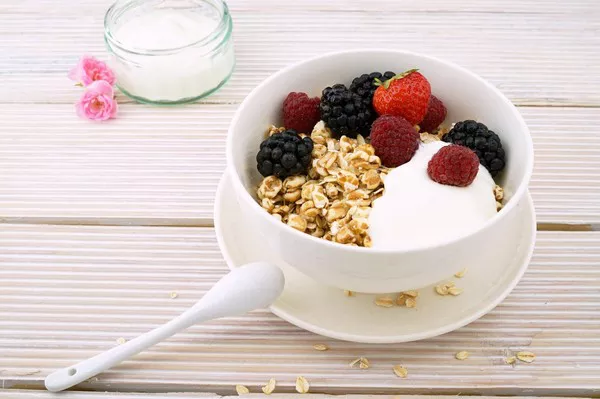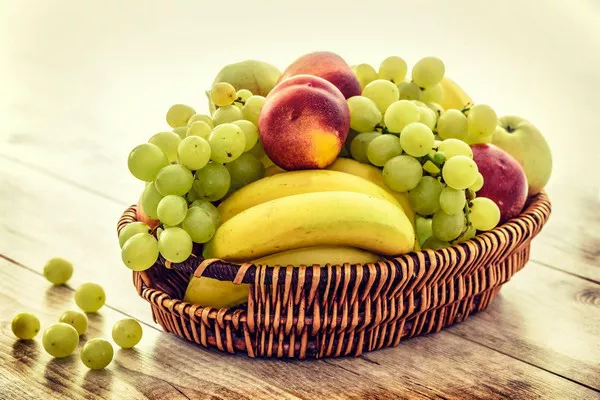Carrots, scientifically known as Daucus carota, are well-known for being a rich source of essential vitamins and minerals, particularly vitamin A and beta-carotene. They are a popular vegetable and a staple in many cuisines worldwide. As people become more health-conscious and attentive to their nutritional intake, questions arise about the protein content in various foods, including carrots. In this article, we will delve into the question: Do carrots have protein? Additionally, we will explore the nutritional value of carrots, their protein-related benefits, and compare them with other protein sources.
SEE ALSO: How Much Protein in an Egg: Unraveling One of the Best Nutritional Powerhouse
1. The Protein Content in Carrots
The primary macronutrients in foods are carbohydrates, fats, and proteins. While carrots are indeed a nutrient-packed vegetable, they are not notably high in protein. On average, one medium-sized carrot (approximately 61 grams) contains only around 0.6 grams of protein. This amount is relatively low compared to other protein-rich foods. Therefore, carrots are not a significant source of protein, and those seeking substantial protein intake should consider incorporating other protein sources into their diet.
2. Nutritional Value of Carrots
Despite being relatively low in protein, carrots offer a host of other essential nutrients that contribute to overall health and well-being. The primary nutrients found in carrots include:
– Vitamin A: Carrots are renowned for their exceptional vitamin A content. Beta-carotene, a carotenoid pigment found in carrots, is a precursor to vitamin A, promoting good vision, a healthy immune system, and maintaining skin health.
– Fiber: Carrots are an excellent source of dietary fiber, aiding digestion and promoting bowel regularity. A single medium-sized carrot contains about 2 grams of fiber, contributing to the recommended daily intake of this essential nutrient.
– Antioxidants: Carrots are rich in antioxidants, such as beta-carotene, alpha-carotene, and lutein, which help combat harmful free radicals in the body and reduce the risk of chronic diseases.
– Vitamin K1: This fat-soluble vitamin is crucial for blood clotting and bone health, and carrots provide a notable amount of vitamin K1.
– Potassium: Carrots contain potassium, an essential mineral that supports heart health and helps regulate blood pressure.
3. The Role of Protein in the Diet
Protein is an indispensable macronutrient required for numerous vital functions in the body. It plays a key role in:
– Muscle Maintenance and Growth: Protein is essential for maintaining and repairing body tissues, including muscles. It is particularly crucial for individuals engaged in regular physical activity and strength training to support muscle development and recovery.
– Enzyme Function: Many enzymes responsible for catalyzing chemical reactions in the body are proteins. These enzymes are involved in various metabolic processes necessary for maintaining life.
– Hormone Production: Certain hormones, such as insulin and growth hormones, are proteins that regulate various physiological functions.
– Immune System Support: Antibodies, which play a central role in the immune system, are protein-based molecules that help defend the body against infections and illnesses.
SEE ALSO: How Much Protein Should I Eat a Day? A Comprehensive Guide
4. Complementary Protein Sources
Considering the relatively low protein content in carrots, individuals looking to increase their protein intake should incorporate other protein-rich foods into their diet. Some excellent plant-based sources of protein include:
– Legumes: Beans, lentils, chickpeas, and peas are rich in protein, fiber, and various vitamins and minerals.
– Nuts and Seeds: Almonds, peanuts, chia seeds, and flaxseeds are protein-dense options that also offer healthy fats.
– Quinoa: A whole grain that contains all essential amino acids, making it a complete protein source, unlike most other plant-based foods.
– Tofu and Tempeh: These soy-based products are versatile and excellent sources of protein, especially for vegetarians and vegans.
– Edamame: Young, green soybeans are not only delicious but also rich in protein and fiber.
SEE ALSO: 10 Kinds of Food High in Protein for Optimal Nutrition
5. The Benefits of Including Carrots in Your Diet
While carrots are not a significant source of protein, they offer an array of health benefits, making them a valuable addition to any diet. Some of these benefits include:
– Vision Support: Carrots’ high vitamin A and beta-carotene content contribute to better eyesight and may help reduce the risk of age-related macular degeneration.
– Heart Health: The potassium and fiber in carrots support heart health by helping to lower blood pressure and maintain healthy cholesterol levels.
– Skin Health: The antioxidants in carrots help combat free radicals, promoting healthy and radiant skin.
– Weight Management: With only around 25 calories per medium-sized carrot, they can be a satisfying and low-calorie option for those watching their weight.
– Digestive Health: The fiber in carrots aids in digestion and promotes a healthy gut.
6. Delicious Dietary Tips with Carrots in High Protein
While carrots themselves are not high in protein, you can create delicious and nutritious meals by combining them with other protein-rich foods. Here are some tasty dietary tips and combinations that incorporate high-protein ingredients with carrots:
– Carrot and Chickpea Salad
Create a refreshing salad by combining grated or thinly sliced carrots with cooked chickpeas. Add some chopped fresh herbs like parsley or cilantro, a drizzle of olive oil, a squeeze of lemon juice, and a sprinkle of salt and pepper. This salad provides a good balance of protein, fiber, and vitamins.
– Carrot and Lentil Soup
Prepare a hearty and protein-packed soup by simmering carrots with red lentils, onions, garlic, and vegetable broth. Blend the cooked mixture until smooth, and season with your favorite herbs and spices. Lentils are an excellent source of plant-based protein and complement the sweetness of carrots in this comforting soup.
– Carrot and Tofu Stir-Fry
Incorporate carrots into a vibrant stir-fry with tofu. Sauté sliced carrots, tofu cubes, bell peppers, and broccoli florets in a savory stir-fry sauce made from soy sauce, garlic, ginger, and a touch of sesame oil. Tofu adds a significant amount of protein, making this dish both delicious and nutritious.
– Carrot and Quinoa Bowl
Combine shredded carrots with cooked quinoa, cherry tomatoes, cucumber, avocado, and a handful of pumpkin seeds. Drizzle with a light lemon-tahini dressing to create a tasty and protein-rich grain bowl.
– Carrot and Peanut Butter Smoothie
Blend together carrots, frozen banana, peanut butter, plant-based milk, and a touch of cinnamon to make a creamy and satisfying smoothie. The peanut butter provides protein and adds a delightful nutty flavor that pairs well with the sweetness of carrots.
– Carrot and Edamame Salad
Mix steamed edamame beans with grated carrots, thinly sliced red cabbage, and a zesty lime dressing. Edamame, or young soybeans, are an excellent source of protein and give this salad a delightful crunch.
– Carrot and Hummus Snack
For a quick and protein-rich snack, dip carrot sticks in hummus. Hummus, made from chickpeas and tahini, is a nutritious and flavorful way to boost your protein intake while enjoying the natural sweetness of carrots.
– Carrot and Egg Breakfast
Prepare a hearty breakfast by sautéing grated carrots with spinach and diced bell peppers. Top with scrambled eggs or a poached egg for an additional protein boost.
– Carrot and Walnut Energy Bites
Combine grated carrots, chopped walnuts, dates, and a hint of cinnamon to create energy bites that are both protein-rich and delicious. These bites make for a perfect on-the-go snack or a quick pick-me-up during the day.
Conclusion
In conclusion, while carrots are not a significant source of protein, they are a valuable vegetable that offers various essential nutrients and health benefits. For individuals seeking to increase their protein intake, it is essential to incorporate other protein-rich foods into their diet. Whether enjoyed raw, cooked, or juiced, carrots can be a flavorful and nutritious addition to any meal plan. By combining carrots with a diverse range of protein sources, individuals can achieve a well-rounded and balanced diet that supports overall health and vitality. Remember to consult with a healthcare professional or a registered dietitian for personalized dietary advice and recommendations.
[inline_related_posts title=”Related Topics” title_align=”left” style=”list” number=”3″ align=”none” ids=”1057,1029,1060″ by=”categories” orderby=”rand” order=”DESC” hide_thumb=”no” thumb_right=”no” views=”no” date=”yes” grid_columns=”1″ post_type=”” tax=””]


































